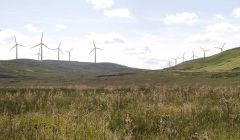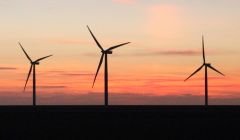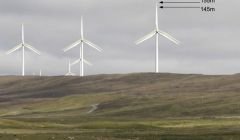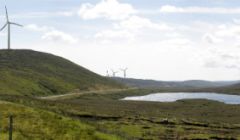Letters / The opposite of ‘sustainable’ (Viking Energy)
According to your report on the planning committee’s meeting of 15 April, planning officer John Holden said about the track proposed for the converter station at Upper Kergord: “…what has to be considered is whether these impacts are so adverse that we should put aside the inherent presumption within the planning system which is in favour of development unless the adverse impacts of a development would significantly and demonstrably outweigh the benefits, in this case a key enabling component to a sustainable energy development’, (Upper Kergord access track gets green light; SN, 16/04/2019).
There is no argument that the track is not a key enabling component to energy development (the Viking Energy wind farm), but as to the development being “sustainable”, there are serious drawbacks.
The industrialisation of large areas of peatland, which has the inherent capacity to sequester carbon if it is composed of active blanket bog, inevitably involves its destruction. Indeed a close examination of the ecological surveys done in the locations of turbines and tracks proposed reveals that much of the Viking Energy wind farm is on active, or “good quality” blanket bog.
While there is no question that there is much eroded peatland in Shetland, by and large caused by overgrazing by sheep, there is a continuing, government funded restoration programme underway in Shetland, as in Scotland as a whole. It is estimated that the cost of such restoration in Shetland is in the order of £2,500 per hectare – no mean sum.
Naturally, however, this restoration programme does not involve building expensive and expansive wind farms, which even developers and planners recognise have an adverse effect on peatland, hence necessitating mitigation by means of – also expensive – Habitat Management Plans.
The effect is particularly adverse where it can be demonstrated, as on the Mid Kame, that over long years involving reduction of sheep numbers, blanket bog has recovered spontaneously, and is actually doing a damn good job in atmospheric carbon reduction.
Become a member of Shetland News
To tear this up for tracks and turbine bases is, I would argue, the very opposite of “sustainable”, in either environmental or even economic terms.
It just makes no sense at all, and that it does not occur to our councillors to question it, even when it has been pointed out to them, is frankly a tragedy.
James Mackenzie
The Lea
Tresta
Become a member of Shetland News
Shetland News is asking its readers to consider paying for membership to get additional perks:
- Removal of third-party ads;
- Bookmark posts to read later;
- Exclusive curated weekly newsletter;
- Hide membership messages;
- Comments open for discussion.
If you appreciate what we do and feel strongly about impartial local journalism, then please become a member of Shetland News by either making a single payment, or setting up a monthly, quarterly or yearly subscription.

















